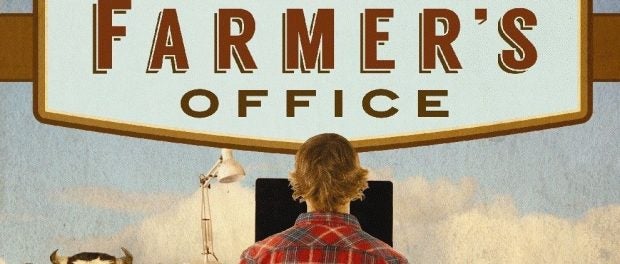Bookkeeping Tools for Farmers Webinar

Bookkeeping Tools For Farmers, A Free Webinar from the Urban Food Systems program at Kansas-State Olathe – February 12th, 2020
Join us for our next Gaining Ground webinar, Bookkeeping Tools For Farmers on Wednesday, February 12, 2020 at 10:30 am CST presented by Julia Shanks! Julia is an Entrepreneurial Consultant and author of “The Farmer’s Office: Tools, Tips and Templates to Successfully Manage a Growing Farm Business”. This webinar is geared towards agriculture educators, Ag professionals and Extension agents and staff.
During this FREE live webinar, Julia will review:
- Overview of Quickbooks and Excel
- Best options for small/diversified growers or urban growers
- Helpful hints
- Pros and Cons
- Resources
Bookkeeping Tools is part of a series of webinars entitled Gaining Ground. Gaining Ground is a project of Kansas State University’s M.S. in Horticulture with an Emphasis in Urban Food Systems program. This degree program focuses on how the urban food system impacts economic development and provides a source of nutritious, safe food grown locally/regionally. Each webinar is delivered by experts from the urban core such as urban farmers, nonprofit educators, food policy advocates and government workers. Please note that his webinar will be 1.5 hours long. All webinars are hosted through Zoom. Participants in this webinar will be able to ask questions live so be sure to have your questions ready.
Unable to make the live webinar? No problem! All registrants will receive the link after the event.
For more information or to register for the Bookkeeping Tools for Farmers webinar CLICK HERE!
Gaining Ground Webinar Series is based upon work that is supported by the National Institute of Food and Agriculture, U.S. Department of Agriculture, under award number 2019-38640-29879 through the North Central Region SARE program under project number ENC19-181 Capacity Building in Urban Food Systems in the North Central Region. USDA is an equal opportunity employer and service provider. Any opinions, findings, conclusions, or recommendations expressed in this publication are those of the author(s) and do not necessarily reflect the view of the U.S. Department of Agriculture.
- Learn more about business planning for farmers at https://www.beginningfarmers.org/farm-business-planning/
- Find tons more great farming resources at https://www.beginningfarmers.org/additional-farming-resources/





 Your Privacy Choices
Your Privacy Choices
Leave a comment